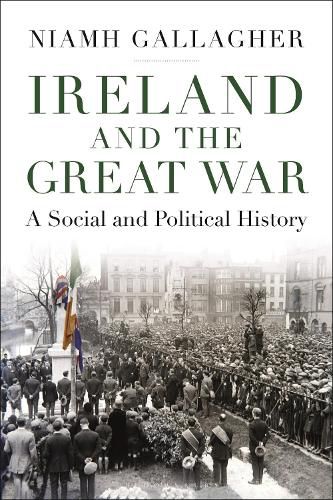Readings Newsletter
Become a Readings Member to make your shopping experience even easier.
Sign in or sign up for free!
You’re not far away from qualifying for FREE standard shipping within Australia
You’ve qualified for FREE standard shipping within Australia
The cart is loading…






On 4 August 1914 following the outbreak of European hostilities, large sections of Irish Protestants and Catholics rallied to support the British and Allied war efforts. Yet less than two years later, the Easter Rising of 1916 allegedly put a stop to the Catholic commitment in exchange for a re-emphasis on the national question.
In Ireland and the Great War Niamh Gallagher draws upon a formidable array of original research to offer a radical new reading of Irish involvement in the world’s first total war. Exploring the ‘home front’ and Irish diasporic communities in Canada, Australia, and Britain, Gallagher reveals that substantial support for the Allied war effort continued largely unabated not only until November 1918, but afterwards as well.
Rich in social texture and with fascinating new case studies of Irish participation in the conflict, this book has the makings of a major rethinking of Ireland’s twentieth century.
$9.00 standard shipping within Australia
FREE standard shipping within Australia for orders over $100.00
Express & International shipping calculated at checkout
On 4 August 1914 following the outbreak of European hostilities, large sections of Irish Protestants and Catholics rallied to support the British and Allied war efforts. Yet less than two years later, the Easter Rising of 1916 allegedly put a stop to the Catholic commitment in exchange for a re-emphasis on the national question.
In Ireland and the Great War Niamh Gallagher draws upon a formidable array of original research to offer a radical new reading of Irish involvement in the world’s first total war. Exploring the ‘home front’ and Irish diasporic communities in Canada, Australia, and Britain, Gallagher reveals that substantial support for the Allied war effort continued largely unabated not only until November 1918, but afterwards as well.
Rich in social texture and with fascinating new case studies of Irish participation in the conflict, this book has the makings of a major rethinking of Ireland’s twentieth century.